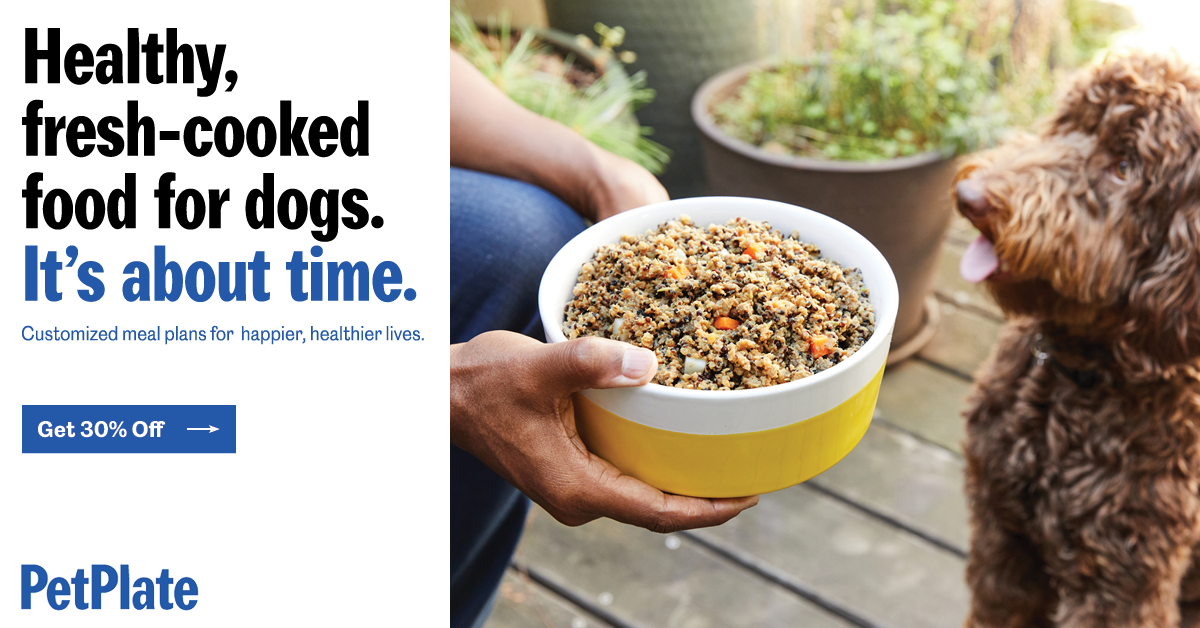Disclosure: This post contains affiliate links. We may earn a small commission if you decided to make a purchase, at no additional cost to you.
German Shepherd is a large breed dog. With proper care, a German Shepherd can live for up to 12 years or more.
However, like all living beings, they are subject to various health issues and aging processes that can shorten their lifespan. If you want to extend the life of your German Shepherd and give them the best possible quality of life, there are several things you can do.
In this blog post, we will discuss six tips that you must know to help extend your German Shepherd’s lifespan. These tips cover various aspects of care, including nutrition, exercise, grooming, and medical attention. By following these recommendations, you can help your German Shepherd live a long and happy life by your side.
The 4 life stages of a German Shepherd
First thing first, understanding a dog’s life cycle allows us to be mindful of their need in each stage. It also helps us to understand our canine best friend’s behavior and know what to expect in the next stage.
The average lifespan of German Shepherds is 12 years. It is not uncommon for a GSD to pass as early as the age of 8. But some GSDs can even make it past 20!
And they go through four life stages: puppy, adolescent, adulthood, and senior. Let’s take a look at the four stages of a dog’s life cycle, so you can know what to expect.
1. Puppy Stage
The puppy stage begins with birth and lasts until dogs are between 6 and 18 months old.
As a matter of fact, all German Shepherd puppies are either born black, gray or white and their coat color changes as they grow. Their true coat color can usually be recognized at about 8 weeks of age.
They are born deaf, blind, and unable to regulate their body temperature. At around 2-3 weeks, puppies start to see and hear and are able to stand and move around a little. With their senses developed, they now start to learn about their surroundings.
A pup’s first eight weeks should be spent with their mother and siblings before beginning life with their new owner. The main reason for this is socialization. When a puppy is with its littermates and especially its mother, it learns valuable behaviors.
2. Adolescent Stage
The adolescent stage of your dog’s life cycle will begin sometime between the ages of 6 and 18 months. This is the stage of your dog will grow tremendously. And they will become sexually mature.
Female adolescent dogs will go into heat and male adolescent dogs will begin lifting their hind leg to urinate. They will also be more interested in marking with urine and sniffing.
This is also the time when a puppy starts to learn what is acceptable and what is unacceptable behavior. Consider your juvenile puppy to be similar to that of a young teenager, so expect boundaries to be pushed and attention to wane quickly.
3. Adult Stage
The adult stage of a GSD life cycle begins at about 18 months for males and about 24 months for females when they are fully grown – your German Shepherd should have reached his full height.
The average size for an adult male GSD is around 24 to 26 inches tall at the shoulder and weighs between 85-100 pounds. A fully grown female GSD is about 20 to 22 inches tall and weighs from 60 to 75 pounds.
Dogs become easier to manage, as their earlier training pays off, although they still enjoy walks, play, and mental stimulation. It is a great time to find activities that you and your dog can enjoy together, such as hiking, jogging, or agility classes.
4. The Senior Stage
Being a larger breed, German Shepherds will typically age faster, with the average lifespan being 11-12 years, depending on lifestyle, nutrition, and location.
A German Shepherd’s golden years will begin roughly between the ages of 7 and 10. You will notice their muzzle will start to turn grey.
Their energy tends to dwindle. More sleep is needed and joint or dental problems are common. It is vital to keep up with regular vet visits.
How to tell your German Shepherd’s age
If you happened to rescue a German Shepherd and want to know his/her age, the single most effective way is to examine their teeth.
A puppy has no teeth until the age of about 4 weeks. It has incredibly sharp and thin teeth between 4 and 8 weeks, and at eight weeks they start to grow their permanent adult teeth.
Puppies that have permanent teeth with no damage are usually aged between two months and one year.
One-year-old dogs start to show some staining on the teeth at the back of the mouth.
By five years, a dog will have quite a lot of tartar and by ten years, your GSD will have cracked and broken teeth.
Age of German Shepherds vs age in human
Understanding your German Shepherd’s age in equivalent to human’s age can give you a better idea of how to better take care of their needs.
As you can see in the table below, German Shepherds age more quickly during the first two years of their life. By 1.5 years (for male) to 2 years (for female) of age, German Shepherds are considered to be sexually matured and fully grown. And they will age comparatively slower at the later years of their life.
Watch this video if you want to learn more about the aging of dogs:
| Age of German Shepherd | Age in human |
| 1 | 15 |
| 2 | 24 |
| 3 | 28 |
| 4 | 32 |
| 5 | 36 |
| 6 | 45 |
| 7 | 50 |
| 8 | 55 |
| 9 | 61 |
| 10 | 66 |
| 11 | 72 |
| 12 | 77 |
| 13 | 82 |
| 14 | 88 |
| 15 | 93 |
| 16 | 99 |
Buy your German Shepherd from reputable breeders
If you are considering buying a German Shepherd puppy, a reputable breeder can go a long way when it comes to the health and lifespan of the pup. A good breeder’s puppies will never be for sale at a pet store.
Every good life starts with the search for the best breeder. Correct breeding is the very foundation of a healthy and well-tempered dog and genetics play a huge role in this.
A reputable breeder will be able to offer you information regarding the genetic testing of the parents and be able to offer certification of hips, elbows, eyes, and knees.
Even if the parents are not affected by any disease, they could be carriers of recessive genes that will be passed onto the next generation.
Read our guide on which will help you determine a responsible breeder by asking the right questions.

How to extend your German Shepherd’s lifespan?
While genetics will take its toll on the overall lifespan of your dog, there is still so much you can do to help your German Shepherd to live a long and healthy life.
Here are some of them:
#1 Feed your German Shepherd with high-quality food
The best food for your dog is the owner’s dream. The benefits are everything you want from a healthy and happy pet who is more likely to live a longer life. And here are some of the most obvious benefits:
- Coats become shiny and thinker
- More energy, calmer and happier
- Stool habit becomes more regular
Many people feed their dog kibbles because it’s easy and efficient. It’s entirely your own choice to feed what you think is the best for your dog.
While most commercial dog foods are labeled “nutritionally complete,” that doesn’t mean they are the best meal for your dog. Many dog foods even include filler ingredients like corn or meat by-product that have little to no nutritional value.
Corn is NOT appropriate for carnivores. It is an incomplete protein, contains protein, and is one of the more allergenic food substances, especially since much of it is GMO.
Dr. Elsa Katz

The three best foods for your dog
According to Veterinarian Dr. Marty, the three best food for your dogs are:
#1 Organ meat: In comparison to meat, organs are more densely packed with nutrients, essential vitamins, protein, and minerals like iron, copper, magnesium, and iodine.
#2 Omega 3: It is proven to increase brain development, provide joint relief and ease allergies. This results in a more responsive, easier-to-train, and more alert dog.
#3 Prebiotics: They are usually found in flax, pea flour, carrot, ginger. Prebiotics works to support the immune system, improve digestion, and guard against environmental toxins.
More posts on feeding your German Shepherds

Must read:
- The Best & Worst Dog Foods Ever – According to a 45-Year Veterinarian
- Worst Dog Food for German Shepherds
- Is Grain-Free Good for German Shepherds?
- How to Stop Food Aggression Towards People in German Shepherds?
Choosing the best dog food:
- The Best Food For German Shepherd Puppies
- Best Cheap Dog Food for German Shepherds (Dry and Wet Food)
- Best Dry Dog Food for Your German Shepherd Puppies: How to Choose?
- The Best Dog Food for a 12 Months German Shepherd
- What To Look For When Buying Dog Food for German Shepherds?
- Is Royal Canin German Shepherd Dog Food Any Good? Read This First
On feeding your German Shepherd:
- How Much Does It Cost to Feed a German Shepherd Puppy in the First Year?
- How Much Does an 8-Week-Old German Shepherd Puppy Eat in a Day? A Feeding Guide
- How Much Does a 3-Month-Old German Shepherd Dog Eat in a Day? A Feeding Guide
- How Much Does a 6-Month-Old German Shepherd Dog Eat in a Day? A Feeding Guide
- Can Dogs Eat Vanilla Ice Cream?
- 17 Human Foods That Are Safe For German Shepherds to Eat
- The Benefits of Feeding German Shepherds Raw Food
- How to Feed Your Dog Raw Food on a Budget?
- Is It Ok to Give Raw Meat to My German Shepherd Puppy?
For picky eaters:
#2 Have proper vet care handy for your German Shepherd
You should take your German Shepherd to the vet at least once a year when they are young and twice a year as they age for wellness checks. Why?
Many health conditions are much easier to treat if they are caught early on before your dog is showing symptoms. Additionally, dogs cannot talk and most of the time it’s too late until you discover they are in pain. So your vet may catch something like hip dysplasia before you see your German Shepherd limping.

Don’t get caught in a dilemma of choosing between paying for life-saving treatment or medical care and other family bills. There are many pet health plans on the market you can take advantage of to save give your beloved GSD the vet care without the worry of financial devastation.
Talk to your vet about natural health supplements for your dog, like fish oil, glucosamine or chondroitin . These supplements may support your dog’s overall health and prevent joint issues.
#3 Give Your German Shepherd plenty of exercises
German Shepherds are high-energy dogs and can turn to destructive behaviors if they don’t get enough exercise during the day. They need at least 1-2 hours of exercise every day, and the more, the better. Even a 30-minute walk twice a day may not be enough to expend all their energy.
The worse thing you want is to have the excessive energy turn into chewing things they shouldn’t. And if they swallow something that doesn’t pass through their digestive tract, it could kill them.
Therefore, giving your GSD a good amount of exercise daily can keep them out of trouble and impact their lifespan.
Some exercise options to consider with your German Shepherd include:
- Running around a dog park
- Playing fetch in the backyard
- Jogging with you on leash
- Running next to you as you bike
- Hire a dog walker/sitter
- Doggy daycare
Loved by dog parents and veterinarians in more than 100 countries, FitBark is an all-in-one health & location tracker that lets you stay on top of everything you need to know about your dog’s well-being.
Key Benefits:
- Get Exit / Entry Wi-Fi Safe Place Alerts
- Track Your Pup Nationwide in Real Time
- Monitor Activity & Sleep 24/7
- Monitor Mobility & Pain
- Monitor Stress & Anxiety
- Monitor Itchiness & Skin Diseases
#4 Maintain Your German Shepherd’s Weight
More than half of all pet dogs are overweight or obese, and dogs face many of the same obesity-related diseases as people. Additionally, being overweight can add more strain to already aching joints in dogs prone to hip dysplasia or arthritis.
How can you tell if your German Shepherd is overweight?
Your dog’s weight can fluctuate for a lot of reasons. Over or undereating, not having enough exercise, or sickness can all affect their weight.
It is very common to use a dog body composition chart to determine whether your dog is overweight or underweight.

Unless your dog is suffering from health issues, there’s a lot you can do to ensure your pup lives a healthy life. Here are our top tips for how you can help your dog lose weight:
- Cut back on the snack or treats
- Choose high-quality dog foods
- Reduce processed carbs; replace them with healthy proteins and vegetables.
- Build an exercise routine or get your dog an exercise buddy
- Start to track your dog’s activity and calories burned with an activity monitor
If you’re experiencing difficulty helping your dog reach a healthy weight, you should reach out to your vet’s office to check for potential health issues.
Related post: German Shepherd Weight Chart: Is My Dog Overweight or Underweight?
# 5 Take good care of your German Shepherd’s hip
Being large dogs, German Shepherds are prone to hip and joint issues.
Repeatedly going up and down stairs can gradually injure joints and may lead to hip dysplasia in dogs that are susceptible to the disease. Ideally, puppies should be not be using the stairs at all. And grown dogs should only be using stairs on occasion.
The best thing you can do is to make sure that your dog doesn’t need to walk stairs on a daily basis and consider getting a ramp for your car, sofa, or any other elevated furniture.
#6 Take good care of your German Shepherd’s teeth
You may not realize it, but poor dental health can impact a dog’s overall health. If you don’t care for your German Shepherd’s teeth, bacteria from under their gum line can enter your dog’s bloodstream and affect their organs, including their heart.
Starting from an early age, brushing your German Shepherd’s teeth at least twice a week is your best bet. But if they won’t allow you to do that, regular access to chew toys or bones can help remove plaque and tartar from their teeth.
On top of that, just like humans, your German Shepherd should also get a professional dental cleaning from your vet regularly, usually once a year.

#7 Consider spaying/ neutering your German Shepherd
According to Vetericyn, an animal wellness products producer, spaying or neutering reduces the likelihood of prostate cancer, testicular cancer, and the risk of developing reproductive system complications. The life expectancy of neutered male dogs increases by 13.8%, while female dogs indicate a 26.3% increase in their natural life.
What do German Shepherds die from?
This is not meant to be an exhaustive list. But I only want to list out the most command causes of death for German Shepherds in general to give you an idea.
- Bloat – A condition where the stomach fills with air and twists on its axis, cutting off the blood supply to the intestines. Fatal in about half of all cases.
- Degenerative myelopathy – A degenerative spinal cord disease with no cure that eventually leads to paralysis. More common in German Shepherds than other dog breeds.
- Hip dysplasia – A painful condition where the thighbone doesn’t fit properly in the hip socket. Often leads to arthritis and mobility issues.
- Hemangiosarcoma – An aggressive form of cancer that affects the cells that line blood vessels.
- Epilepsy – While treatable up to a point, seizures can eventually be fatal.
Regardless of the breed you choose, there are going to be all sorts of health issues that you’ll have to face at one point or another during a dog’s life.
Being aware of these causes of death can help you make better decisions and take proper precautions as a responsible GSD owner.
German Shepherd lifespan: male vs female
Some studies have shown that female dogs have a longer lifespan than male dogs but the biggest factor seems to be whether the dogs have been spayed or neutered.
Researchers have found that female dogs that have been spayed have a longer lifespan than female dogs that are intact. Likewise, male dogs that have been neutered also have a longer lifespan than male dogs that are intact.
Final Thought – Live in the moment
Your dog is not worried about what happened yesterday, or what will happen tomorrow. They are just interested in today. They live in the moment and enjoy every minute of it. Life is too short to worry about. Life is even shorter for dogs. Following the tips above will ensure you and your dog will live the best quality of life.
FAQs
What is the life expectancy of German Shepherds?
With proper care and a healthy diet, a German Shepherd can live up to 12 years or more.
Do large breed dogs have a shorter lifespan?
Unfortunately yes. Large dog breeds grow faster and tend to age more quickly. A large dog like a Saint Bernard will have a lifespan of between five to eight years, while smaller breeds can generally live as long as 15 to 18 years.
Do purebred German Shepherds live longer than mixed dogs?
It seems that there is no significant difference between the lifespans of purebred vs. mixed-breed dogs. At the end of the day, it all depends on the lifestyle, diet, exercise, and the care a dog gets from the owner.




